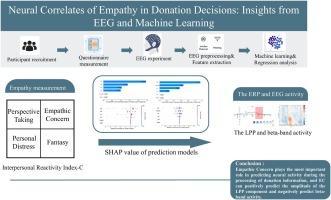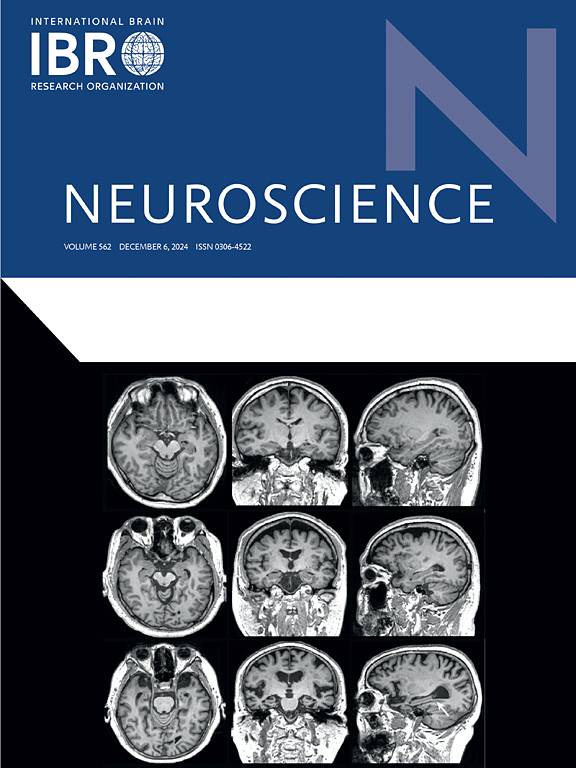捐赠决策中移情的神经相关性:脑电图和机器学习的启示
IF 2.8
3区 医学
Q2 NEUROSCIENCES
引用次数: 0
摘要
同理心对个人和社会福祉至关重要。许多研究都探讨了共情特质如何影响亲社会行为。然而,很少有研究探讨特质移情的不同维度影响亲社会行为的心理和神经机制。填补这一知识空白对于理解移情驱动的亲社会行为非常重要。我们采用脑电图实验结合可解释的机器学习方法来探究这些问题。我们发现,移情关注(EC)在捐赠决定中起着最关键的作用。在行为上,EC 负向调节了感知到的慈善项目的亲密性和应得性对捐赠意愿的影响。机器学习结果表明,EC 能显著预测捐赠信息处理过程中的晚期正电位(LPP)和β波段活动。进一步的回归分析结果表明,EC 比特质移情的其他维度更能正向预测 LPP 的振幅,而负向预测 beta 波段的活动。这些结果表明,EC 分数较高的参与者在处理捐赠信息时可能会体验到更高的情绪唤醒和他人情绪的替代体验。我们的研究为理解特质移情与亲社会行为之间的关系增添了砝码,并提供了电生理学证据。本文章由计算机程序翻译,如有差异,请以英文原文为准。

Neural correlates of empathy in donation decisions: Insights from EEG and machine learning
Empathy is central to individual and societal well-being. Numerous studies have examined how trait of empathy affects prosocial behavior. However, little studies explored the psychological and neural mechanisms by which different dimensions of trait empathy influence prosocial behavior. Addressing this knowledge gap is important to understand empathy-driven prosocial behavior. We employed an EEG experiment combined with interpretable machine learning methods to probe these questions. We found that empathic concern (EC) played the most pivotal role in donation decision. Behaviorally, EC negatively moderates the effect of perceived closeness and deservedness of charity projects on the willingness to donate. The machine learning results indicate that EC significantly predicts late positive potential (LPP) and beta-band activity during donation information processing. Further regression analysis results indicate that EC, rather than other dimensions of trait empathy, can positively predict LPP amplitude and negatively predict beta-band activity. These results indicated that participants with higher EC scores may experience heightened emotional arousal and the vicarious experience of others’ emotions while processing donation information. Our work adds weight to understanding the relationship between trait empathy and prosocial behavior and provides electrophysiological evidence.
求助全文
通过发布文献求助,成功后即可免费获取论文全文。
去求助
来源期刊

Neuroscience
医学-神经科学
CiteScore
6.20
自引率
0.00%
发文量
394
审稿时长
52 days
期刊介绍:
Neuroscience publishes papers describing the results of original research on any aspect of the scientific study of the nervous system. Any paper, however short, will be considered for publication provided that it reports significant, new and carefully confirmed findings with full experimental details.
 求助内容:
求助内容: 应助结果提醒方式:
应助结果提醒方式:


